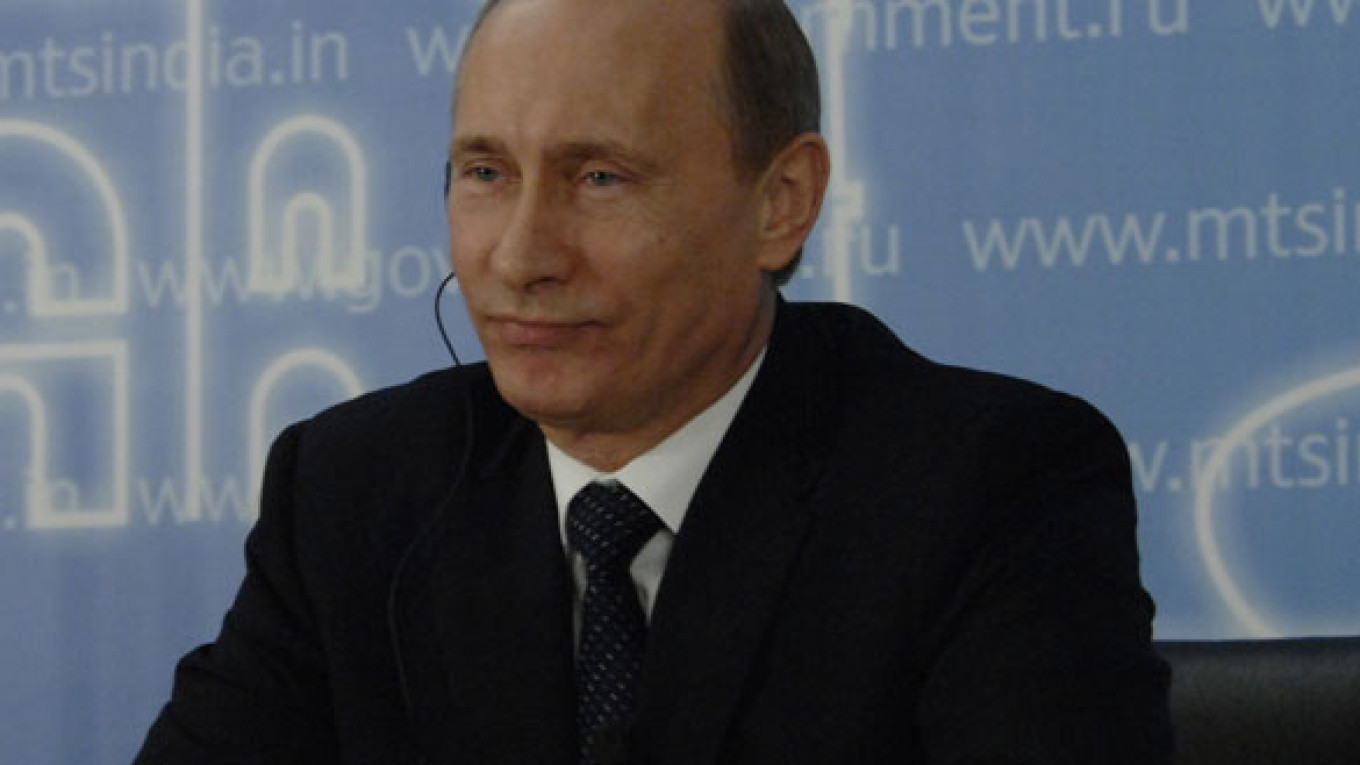Prime Minister Vladimir Putin said Tuesday that the government still held out hope of raising salaries this year for federal employees such as doctors and teachers, despite his recent support for a Finance Ministry plan to push for greater state austerity.
The government will base its decision on salaries — as well as higher retirement pensions — on economic conditions in the fall, Putin said in a meeting with union leaders, reiterating a plan first announced last year.
Hopes for higher payments had been fading because of the Finance Ministry’s efforts to narrow the budget deficit. Independent economists have warned that social spending should not swell any more if that means reducing investment in roads, bridges and power lines.
But Putin, who has left open the possibility of a presidential run in early 2012, indicated that the populist measure still had a chance.
“We will be able to make a final decision … no sooner than the fall, when it’s clear how the economy is functioning,” he told an assembly of labor leaders representing the Federation of Independent Unions of Russia. That will be around the time when next year’s federal budget is ready, along with any amendments to this year’s budget, he added. ?
The government will also push to make wages for industrial employees more substantial, Putin said. “It’s necessary to do our best to make sure the standard of living for their families begins to rise again.”
He did not specify whether he meant workers at state-run companies or whether he was referring to private industry, as well.
The government will urge businesses to raise their payrolls when it negotiates a new trilateral agreement with unions and employers later this year, Andrei Isayev, a State Duma deputy and deputy chairman of the union group, told The Moscow Times after the meeting.
At a meeting Monday with the business leaders, Putin painted an encouraging picture of the economy. Inflation in the first four months was 3.8 percent, the lowest rate in 20 years, he said, adding that it offered the chance “not only to maintain, but also to consistently increase real incomes.”
But Putin also backed a Finance Ministry proposal on May 20 to channel all state spending through long-term programs, which officials said could achieve greater results with less money. Some economists said the ministry would use the proposal to force austerity in government finances.
In offering to seek pay hikes, Putin pre-empted Mikhail Shmakov, chairman of the union federation, who threw his support behind the plan. Wealthier employees would buy more goods and services, thereby contributing to the economic recovery, Shmakov said.
“Low salaries … make it difficult to talk about growth in services and small business,” he said.
Putin rejected, however, Shmakov’s suggestion that the state find a way to dip into the personal wealth of the country’s billionaires, which grew sharply last year on the back of the stock market’s rally.
Introducing a proposal for higher taxes on the affluent, Shmakov said the fortunes made on the stock market were his favorite topic in dealing with the country’s “oligarchs,” prompting Putin to smile.
“This is the wrong place, then,” said Putin, who was flanked by some of his ministers at the meeting. “There’s no one like that here.”
A Message from The Moscow Times:
Dear readers,
We are facing unprecedented challenges. Russia's Prosecutor General's Office has designated The Moscow Times as an "undesirable" organization, criminalizing our work and putting our staff at risk of prosecution. This follows our earlier unjust labeling as a "foreign agent."
These actions are direct attempts to silence independent journalism in Russia. The authorities claim our work "discredits the decisions of the Russian leadership." We see things differently: we strive to provide accurate, unbiased reporting on Russia.
We, the journalists of The Moscow Times, refuse to be silenced. But to continue our work, we need your help.
Your support, no matter how small, makes a world of difference. If you can, please support us monthly starting from just $2. It's quick to set up, and every contribution makes a significant impact.
By supporting The Moscow Times, you're defending open, independent journalism in the face of repression. Thank you for standing with us.
Remind me later.


